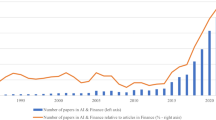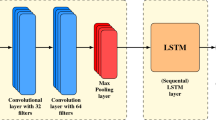Abstract
This paper discusses the usefulness of the long term memory property in price prediction. In particular, the Hurst’s exponents related to a wide set of portfolios generated by three crude oils are estimated by using the detrended fluctuation analysis. To this aim, the daily empirical data on West Texas Intermediate, Brent crude oil and Dubai crude oil for a period of more than 10 years have been considered. It is shown that specific combinations are associated to persistence/antipersistence long-run behaviors, and this highlights the presence of statistical arbitrage opportunities. Such an outcome shows that long term memory can effectively serve as price predictor.





Similar content being viewed by others
References
Alvarez-Ramirez, J., Alvarez, J., & Rodriguez, E. (2008). Short-term predictability of crude oil markets: A detrended fluctuation analysis approach. Energy Economics, 30(5), 2645–2656.
Alvarez-Ramirez, J., Cisneros, M., Ibarra-Valdez, C., & Soriano, A. (2002). Multifractal Hurst analysis of crude oil prices. Physica A, 313(3), 651–670.
Avellaneda, M., & Lee, J.-H. (2010). Statistical arbitrage in the US equities market. Quantitative Finance, 10(7), 761–782.
Baillie, R. T. (1996). Long memory processes and fractional integration in econometrics. Journal of Econometrics, 73(1), 5–59.
Bertram, W. K. (2010). Analytic solutions for optimal statistical arbitrage trading. Physica A, 389(11), 2234–2243.
Bondarenko, O. (2003). Statistical arbitrage and securities prices. Review of Financial Studies, 16(3), 875–919.
Booth, A., Chinthalapati, R., Gerding, E., & McGroarty, F. (2018). High frequency trading strategies, market fragility and price spikes: An agent based model perspective. Annals of Operations Research. https://doi.org/10.1007/s10479-018-3019-4.
Burgess, A. N. (1999). Statistical arbitrage models of the FTSE 100. Computational Finance, 99, 297–312.
Burgess, A. N. (2000). A computational methodology for modelling the dynamics of statistical arbitrage. PhD thesis, University of London.
Cajueiro, D. O., & Tabak, B. M. (2004). The Hurst exponent over time: Testing the assertion that emerging markets are becoming more efficient. Physica A, 336(3), 521–537.
Castellano, R., Cerqueti, R., & Rotundo, G. (2018). Exploring the financial risk of a temperature index: A fractional integrated approach. Annals of Operations Research. https://doi.org/10.1007/s10479-018-3063-0.
Cerqueti, R., Fanelli, V., & Rotundo, G. (2018). Long run analysis of crude oil portfolios. Energy Economics. https://doi.org/10.1016/j.eneco.2017.12.005.
Corazza, M., & Malliaris, A. T. G. (2002). Multi-fractality in foreign currency markets. Multinational Finance Journal, 6(2), 65–98.
Do, B., Faff, R., & Hamza, K. (2006). A new approach to modeling and estimation for pairs trading. In Proceedings of 2006 financial management association European conference (Vol. 1, pp. 87–99).
Elliott, R. J., Van Der Hoek, J., & Malcolm, W. P. (2005). Pairs trading. Quantitative Finance, 5(3), 271–276.
Engle, R. F., & Granger, C. W. (1987). Co-integration and error correction: Representation, estimation, and testing. Econometrica, 55(2), 251–276.
Geman, H. (2007). Mean reversion versus random walk in oil and natural gas prices. In Advances in mathematical finance (pp. 219–228). Springer.
Giles, M. B. (2008). Multilevel monte carlo path simulation. Operations Research, 56(3), 607–617.
Hardstone, R., Poil, S.-S., Schiavone, G., Jansen, R., Nikulin, V. V., Mansvelder, H. D., et al. (2012). Detrended fluctuation analysis: A scale-free view on neuronal oscillations. Frontiers in Physiology, 3(450), 1–13.
He, L.-Y., & Chen, S.-P. (2011). Multifractal detrended cross-correlation analysis of agricultural futures markets. Chaos, Solitons & Fractals, 44(6), 355–361.
Hurst, H. E. (1951). Long-term storage capacity of reservoirs. Transactions of the American Society of Civil Engineers, 116, 770–808.
Jarrow, R. A., Teo, M., Tse, Y. K., & Warachka, M. (2005). Statistical arbitrage and market efficiency: Enhanced theory, robust tests and further applications. SSRN eLibrary. https://doi.org/10.2139/ssrn.659941.
Kirichenko, L., Radivilova, T., & Deineko, Z. (2011). Comparative analysis for estimating of the Hurst exponent for stationary and nonstationary time series. Information Technologies & Knowledge, 5(1), 371–388.
Kloeden, P. E., Neuenkirch, A., & Pavani, R. (2011). Multilevel monte carlo for stochastic differential equations with additive fractional noise. Annals of Operations Research, 189(1), 255–276.
Kristoufek, L., & Vosvrda, M. (2014). Commodity futures and market efficiency. Energy Economics, 42, 50–57.
Kyaw, N. A., Los, C. A., & Zong, S. (2006). Persistence characteristics of Latin American financial markets. Journal of Multinational Financial Management, 16(3), 269–290.
Ortiz-Cruz, A., Rodriguez, E., Ibarra-Valdez, C., & Alvarez-Ramirez, J. (2012). Efficiency of crude oil markets: Evidences from informational entropy analysis. Energy Policy, 41, 365–373.
Peng, C.-K., Buldyrev, S. V., Havlin, S., Simons, M., Stanley, H. E., & Goldberger, A. L. (1994). Mosaic organization of DNA nucleotides. Physical Review E, 49, 1685–1689.
Peng, C.-K., Havlin, S., Stanley, H . E., & Goldberger, A . L. (1995). Quantification of scaling exponents and crossover phenomena in nonstationary heartbeat time series. Chaos: An Interdisciplinary Journal of Nonlinear Science, 5(1), 82–87.
Pole, A. (2007). Statistical arbitrage. Hoboken: Wiley.
Potgieter, P. H. (2009). Fractal asset returns, arbitrage and option pricing. Chaos, Solitons & Fractals, 42(3), 1792–1795.
Serletis, A., & Andreadis, I. (2004). Random fractal structures in North American energy markets. Energy Economics, 26(3), 389–399.
Singh, J., & Prabakaran, S. (2008). On the distribution of returns and memory effects in indian capital markets. International Research Journal of Finance and Economics, I(14), 165–176.
Tabak, B. M., & Cajueiro, D. O. (2007). Are the crude oil markets becoming weakly efficient over time? A test for time-varying long-range dependence in prices and volatility. Energy Economics, 29(1), 28–36.
Wang, Y., & Liu, L. (2010). Is WTI crude oil market becoming weakly efficient over time?: New evidence from multiscale analysis based on detrended fluctuation analysis. Energy Economics, 32(5), 987–992.
Zhang, D., & Ji, Q. (2018). Further evidence on the debate of oil-gas price decoupling: A long memory approach. Energy Policy, 113, 68–75.
Zhao, Y., Chang, S., & Liu, C. (2015). Multifractal theory with its applications in data management. Annals of Operations Research, 234(1), 133–150.
Author information
Authors and Affiliations
Corresponding author
Additional information
Publisher's Note
Springer Nature remains neutral with regard to jurisdictional claims in published maps and institutional affiliations.
Rights and permissions
About this article
Cite this article
Cerqueti, R., Fanelli, V. Long memory and crude oil’s price predictability. Ann Oper Res 299, 895–906 (2021). https://doi.org/10.1007/s10479-019-03376-y
Published:
Issue Date:
DOI: https://doi.org/10.1007/s10479-019-03376-y




